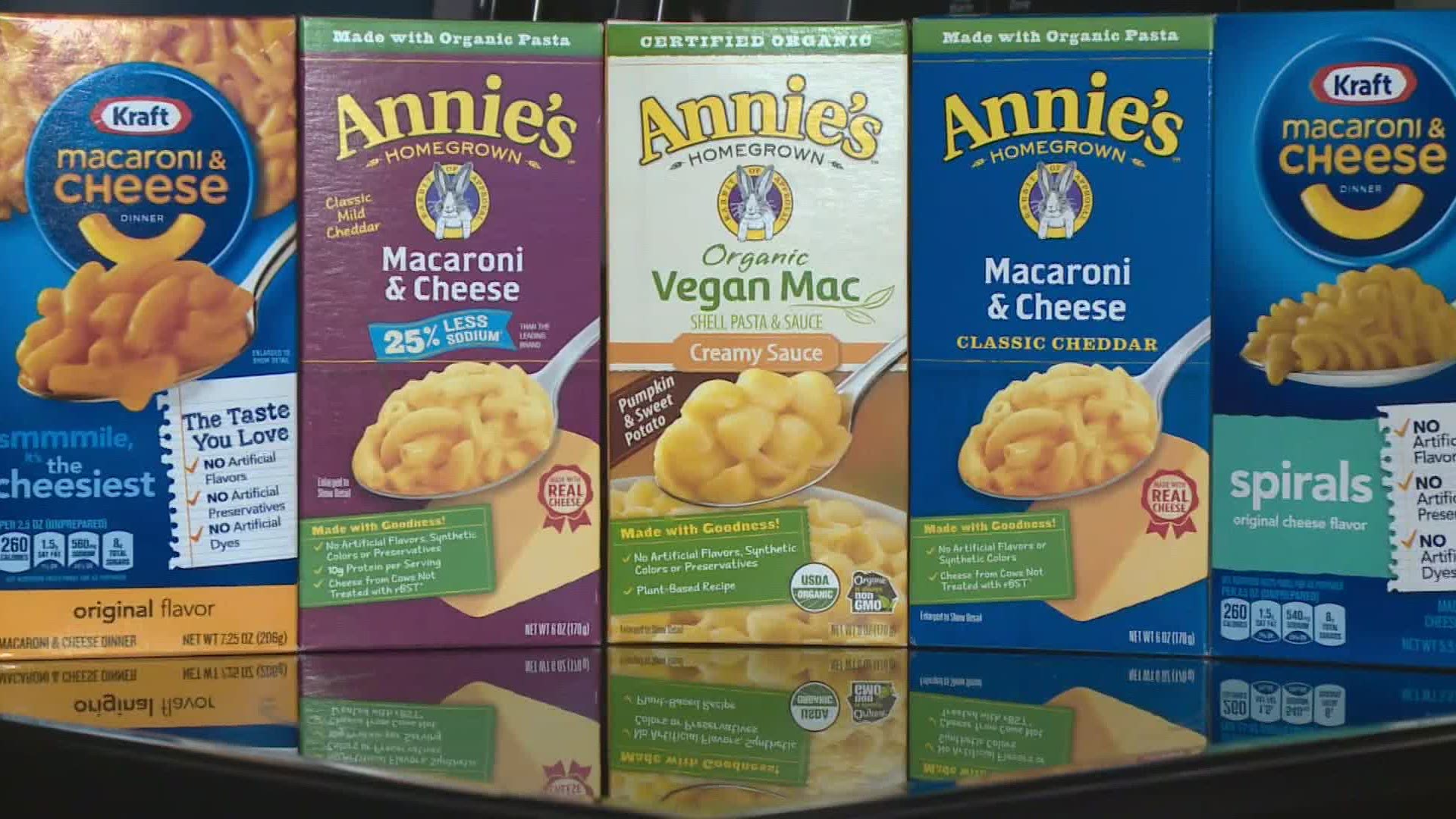SOUTH PORTLAND, Maine — Defend Our Health, a Portland-based environmental non-profit, is lobbying leading macaroni and cheese manufacturers to remove a potentially harmful chemical from its products.
This comes after the Annie's Homegrown organic brand pledged to eliminate chemicals known as phthalates from its packaging process.
The chemicals, which are found in food processing equipment, have been linked to hormone problems and brain development.
Macaroni and cheese is considered one of America's comfort foods, beloved by consumers and especially children. But Defend Our Health says customers are being exposed to toxic chemicals in a number of mac-and-cheese products.
The non-profit advocacy group helped fund a study by the Center for Food Safety that found traces of phthalates in mass-market cheese packets.
Brandon Moore is the national campaign director for Defend Our Health.
"They tested macaroni and cheese powder from the 10 leading brands in the country, and they found phthalates in all 10 of the samples," Moore said.
The chemicals make plastic more flexible and are commonly in food processing equipment.
Pediatrician Dr. Leo Trasande is the chief of the Division of Environmental Pediatrics at the NYU School of Medicine. He said phthalates can disrupt hormones like testosterone and pose a potential risk to children, especially in pregnancy.
"They also disrupt metabolic functions contributing to obesity [and] diabetes and kids are unusually vulnerable because of developing organ systems," Trasande said.
Environmental groups have spent the past several years lobbying the manufacturers of the mac-and-cheese brands tested in the study to remove the chemicals. Earlier this year, General Mills, the corporate parent of Annie's Homegrown, announced it was taking steps towards purging the phthalates from its products.
"We continue to work with our trusted suppliers to eliminate ortho-phthalates that may be present in the packaging materials and food processing equipment that produces the cheese and cheese powder in our macaroni and cheese." General Mills said in a recent statement on its website.
Phthalates are banned in a number of toys but the U.S. Food and Drug Administration hasn't established an allowable level for food products.
The U.S. Centers for Disease Control says the human health effects from exposure to low levels of phthalates are still unknown and more research is needed.
More information on phthalates is available on the U.S. CDC website.

